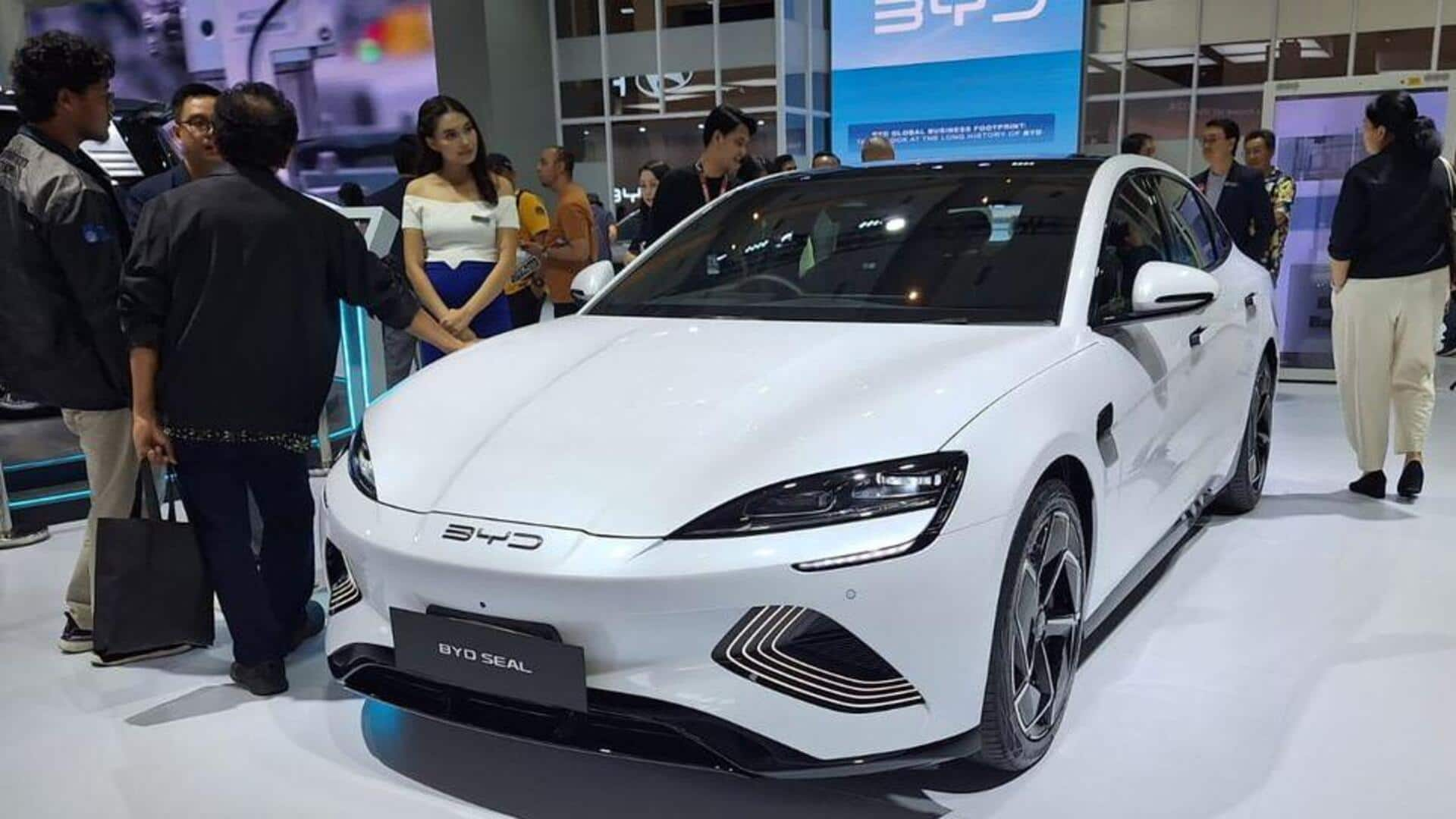
EU increases tariffs on electric vehicle imports from China
What's the story
The European Union (EU) has announced plans to increase tariffs on electric vehicles (EVs) imported from China by up to 38.1%. This decision, set to take effect next month, is a result of an investigation into subsidies that began last year. The move is expected to impact firms such as BYD, Geely Automobile Holdings, and SAIC Motor Corporation, which have been aggressively expanding into Europe.
Rates
Tariff rates vary for different manufacturers
The EU has informed carmakers about the upcoming tariffs, which are set to be implemented around July 4. The individual duties on BYD will be 17.4%, 20% for Geely, and SAIC (38.1%). Other manufacturers not included in the commission's investigation will face a duty rate of 21%, while those who did not cooperate will be subject to 38.1%. Final duty levels are expected to be adopted by November.
Threat
China threatens retaliation over tariff decision
China has warned of potential retaliation, including measures affecting agriculture, cars with large engines, and aviation. Beijing has also initiated an investigation into certain types of European liquor, with a decision expected soon. Shares linked to Chinese EV makers have dropped in Hong Kong following the EU's decision. Geely and XPeng saw an 8% decline this week, while BYD lost about 3%.
Global impact
Decision impacts not only Chinese automakers
The increased tariffs will not only affect Chinese automakers but also impact Western carmakers like Tesla, BMW, and Renault. This is because Tesla ships its Model 3 from Shanghai to Europe, while BMW and Renault also import passenger cars from Europe to China. The current charge on passenger car imports to China from Europe is 15%. The EU's step comes after the US imposed a 100% duty on Chinese EV imports last month.
Motive
EU's decision aligns with its green agenda
The EU's decision to increase tariffs on Chinese EV imports aligns with its green agenda, which includes an effective ICE sales ban for new cars by 2035. However, this agenda has faced challenges in recent months after nations like Germany removed buying incentives. German Chancellor Olaf Scholz has cautioned against restricting automotive trade with China, emphasizing the importance of open markets for both foreign and domestic companies.